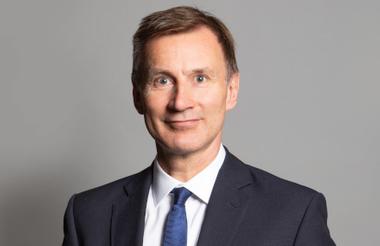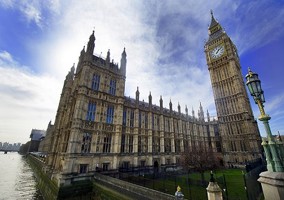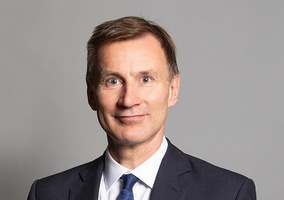Charities have responded to this year’s autumn statement, which could be the penultimate set of tax and spending announcements before the next general election.
Jeremy Hunt announced changes to benefits, national insurance and local housing allowance with £120m to prevent homelessness.
Reforms to energy-saving materials VAT relief were announced, bringing buildings used solely for a relevant charitable purpose within scope following a sector campaign.
Meanwhile, the Office for Budget Responsibility (OBR) produced updated economic forecasts.
Key announcements
Hunt said it was not “big government” cutting taxes, but announced that due to cost-of-living pressures, benefits will increase next year by 6.7%, the inflation rate for September.
This applies to working-age benefits such as means-tested benefits such as Universal Credit, and disability benefits.
There had been speculation that government would use the lower inflation figure for October, when it slowed to 4.6%.
The chancellor said he had listened to organisations such as the Joseph Rowntree Foundation, so was increasing local housing allowance and providing £120m to prevent homelessness.
Government will increase the rate to the 30th percentile of local market rents. This will give 1.6 million households an average of £800 of support next year, he said.
Hunt announced an increase to the National Living Wage, from £10.42 to £11.44 an hour.
The Department for Business and Trade estimate 2.7 million workers will directly benefit from the 2024 National Living Wage increase.
Hunt said: “Next April all full-time workers on the National Living Wage will get a pay rise of over £1,800 a year.”
The National Living Wage was introduced in 2016 and currently sets the minimum hourly pay a person over the age of 23 earns when working. The new rate will now apply to 21 and 22-year-olds.
The chancellor also noted the new Back to Work Plan for people with long-term health conditions, disabilities or long-term unemployment to look for and stay in work.
Hunt added employee national insurance will be cut by 2 percentage points from 12% to 10% from 6 January.
The chancellor pledges £7m to organisations tackling antisemitism, like the charity the Holocaust Educational Trust.
Antisemitism is at an all time high. We will work with Government and partners to ensure generations recognise and stand up against anti-Jewish hatred today and always. Thank you for this support.@Jeremy_Hunt @hmtreasury @CST_UK @UJS_UK pic.twitter.com/0jXrkYjn1j
— H.E.T. (@HolocaustUK) November 22, 2023
Hunt made announcements around Levelling Up, with three new Investment Zones across England. This comes as New Philanthropy Capital (NPC) warned delays in the delivery of levelling up funding will “exacerbate” the divide between charities in richer and poorer areas.
He also confirmed an additional £10m to support veterans, helping to fund vital mental health services for veterans in their communities across the United Kingdom.
The chancellor announced £10m to fund projects that prevent abuse, offer workplace support and understand what works to help domestic abuse survivors find and stay in work.
Sector responses
Christian Aid’s policy, public affairs and campaigns director Osai Ojigho said: “When people right across the globe are struggling with the daily consequences of increasing hunger, conflict and the climate crisis, today’s Autumn Statement is absent of hope.
“Had we seen leadership today, we would have seen a chancellor adopt a ‘polluter pays’ principle to raising taxes on fossil fuel giants and the extremely wealthy to tackle the climate crisis. We would have seen a chancellor tackle global inequality by agreeing to legislation to get debts cancelled for the poorest countries.
“We didn’t see leadership today. It leaves people to ask how the government’s new international development strategy, published this week, will be realised.”
The CEO of homelessness charity Crisis, Matt Downie, said the housing benefit changes will not end homelessness, but are an important saftey net.
So so pleased.
— Matt Downie (@matthew_downie) November 22, 2023
Years of careful influencing work from our sector has paid off, alongside incredible coverage from @DanielHewittITV @Victoria_Spratt @BBCMBuchanan and others.
It won’t end homelessness, but it restates an important part of the safety net. https://t.co/xbCEl5LY39
Rick Henderson, CEO at Homeless Link, said: “We are pleased that the chancellor has finally listened to the repeated calls from our members in the homelessness sector and uplifted the Local Housing Allowance (LHA) rate. It’s no secret that homelessness and rough sleeping are spiralling while local authority and charity services are buckling under the pressure. Raising LHA will at least mean people on low incomes have more breathing space, allowing them to access more affordable housing options while helping prevent homelessness caused by rent arrears.
“However, we are alarmed by the government’s plans to increase the use of punitive welfare measures. Research shows benefit sanctions are disproportionately applied to people experiencing homelessness and are not effective in helping them into work.”
Localis chief executive, Jonathan Werran, said: “While it is to be hoped that the provisional local government finance settlement delivers a pre-Christmas package above current inflationary pressures, today’s statement was never going to fix an unsustainable and broken local government finance system.
“For that we will have to wait for another day, and possibly the next Spending Review, for root-and-branch reform, a fair settlement on the burden of social care responsibility and expenditure, a shift in central-local relations, some measure of revenue uplift and degree of fiscal freedom that will secure the medium safety of our local state as the prime anchor of place.”
Duncan Shrubsole, director of policy, communications and research at Lloyds Bank Foundation, said: “While the chancellor's decision to uprate the Local Housing Allowance is welcome, charities across the country have been on the frontlines, supporting increasing numbers of people facing homelessness as a direct result of the Local Housing Allowance being well below 'real world' rents. A small increase at a time when rents have been sharply rising is not enough. Until Local Housing Allowance rates are set back at the median of local market rents, hundreds of thousands of people will continue to face significant shortfalls between the rent they owe and the social security benefit they receive to cover it, leaving many at risk of arrears, eviction, and homelessness.
“To add to this, the government's desire to increase the use and severity of sanctions is extremely concerning when the evidence shows sanctions already do not work."
Shrubsole said: “The past decade has shown DWP has repeatedly made mistakes in denying disabled and seriously unwell people the social security they are entitled to.â¯Ministers should focus on providing the training and support disabled people need to get back into good jobs, rather than coercing them into unsuitable and unsustainable roles.”
Big Society Capital CEO, Stephen Muers, said: “The chancellor’s statement today made clear that government is operating in a fiscally challenging environment.
“We believe the power of social impact investment is a missed opportunity to tackle the worsening social issues he acknowledged in his speech such as housing costs and the cost of living – without needing a penny more of public spend.”
Paul Carberry, chief executive at Action for Children, said: “The increases to benefits will provide some welcome help for families struggling with rising costs and rents. It is disappointing, though, that the chancellor has chosen to spend a huge amount of money on a national insurance tax cut, which largely benefits the better off, rather than targeted help for the low income families he himself says are at the sharp end of the cost of living crisis.
“The chancellor talks about making work pay but our research shows that almost 2 million children in poverty live in families where their parents face at least one significant barrier to work, such as a disability, being a carer or being a lone parent trying to balance work with looking after a young child.
“The government’s plans to move people into work must address these very real issues in order to provide the help that will make the most difference for parents wanting to work.”
A statement from the Children’s Charities Coalition reads: “Rising numbers of children and families are finding themselves in a desperate situation, trapped in the children’s social care system, which is increasingly turning away from early intervention and focusing on helping those that have reached breaking point. The chancellor could have used the Autumn Statement to tackle this destructive cycle with a commitment to significant investment in children’s social care and it is deeply disappointing he didn’t seize the opportunity.
“Children are being left behind in the UK: more than one in four are living in poverty and there is an escalating mental health crisis which has left services struggling to cope with the rising demand. At the same time there are increasing numbers of children persistently absent from school, at risk of abuse, exploitation and online harm, and being taken into care when families break down under the strain.”
Silvia Galandini, Oxfam domestic poverty lead, said: “We welcome the increase in the minimum wage and the uprating of benefits in line with September’s inflation rate, but punishing people who are unable to work with harsher benefits conditionality and sanctions will only push them further into poverty. The government should not penalise those who cannot work as a result of caring responsibilities, disabilities or illness.
“Today’s focus on tax cuts also contrasted starkly with a lack of commitment to invest more in already under-funded care services, including social care and childcare. These services provide vital support to people with care needs and enable those with unpaid caring responsibilities to do paid work if they want to. Care is critical to the functioning of the entire economy - failure to recognise this is one of the reasons that we have an economy that works well for some, but leaves too many behind.”
Joseph Howes, CEO of Buttle UK and chair of the End Child Poverty Coalition said: “Whilst we are pleased to finally learn that benefit payments will be increased in line with inflation, the weeks of ‘will they, wont they’ beforehand is exceptionally hard for those on the lowest incomes to cope with. Politicians are playing with the lives of the most vulnerable.
“The government needs to urgently address the shocking levels of child poverty in this country by developing a strategy to tackle this, which would include ensuring benefit payments are always uprated by inflation. Alongside this the government must ensure families are paid the amount they need for their children, by scrapping the unfair two-child limit to payments.”
Cara Jenkinson, cities Manager at Ashden, said: “With just a few days to go till COP28, the chancellor has once again missed an opportunity to show leadership on climate action. After rolling back on net zero targets last month, there has been a stony silence on energy efficiency - leaving people exposed to cold homes and high bills. The energy efficiency industry once again faces an uncertain future, jeopardising the chance to create decent jobs across the country.
“Although Jeremy Hunt put forward support for green industry in his speech, the elephant in the room once again is energy efficiency – despite it being one of the quickest, easiest and least costly things we could do to improve people’s lives. Why would a chancellor not do this?
“A long-term investment in energy efficiency now would reduce our exposure to volatile gas prices, cut the cost of expensive upgrades to our energy grid, and improve the mental and physical health of millions of people facing fuel poverty.”
We know a lot of disabled people will be worried by speculation around today’s #AutumnStatement.
— Scope (@scope) November 22, 2023
📢 We’ll be listening closely, sharing updates and our analysis on what this might mean for disabled people.
What charities asked for
Many charities asked for rises in benefits, as well as cause specific asks.
NCVO published an open letter to the chancellor for charities to sign ahead of the autumn statement calling for increased funding of public services.
Hunt was urged to engage properly with UK charities to tackle the country’s challenges and avoid mimicking David Cameron’s Big Society strategy in his autumn statement.
Ahead of the chancellor’s statement, the Food Foundation had also urged government to act for the 900,000 children in England currently living in poverty who are missing out on free school meals due to unfair eligibility criteria.
Ahead of the Autumn Statement, NPC CEO Dan Corry had said: “There's a lot of excitement in Westminster about having money to spend on political priorities like tax cuts. But everyone in the social sector knows that communities still need more support.
“The job is not done on inflation - families are still facing rising prices. We hope the chancellor will focus on people's problems, not just politics.”
This article is being updated...
Related Articles












